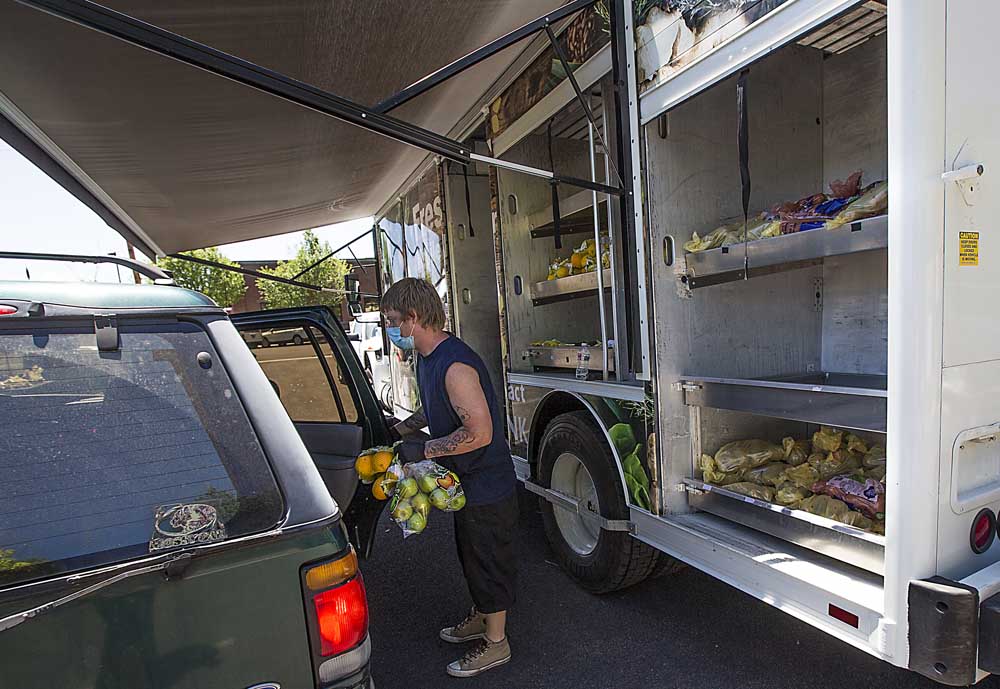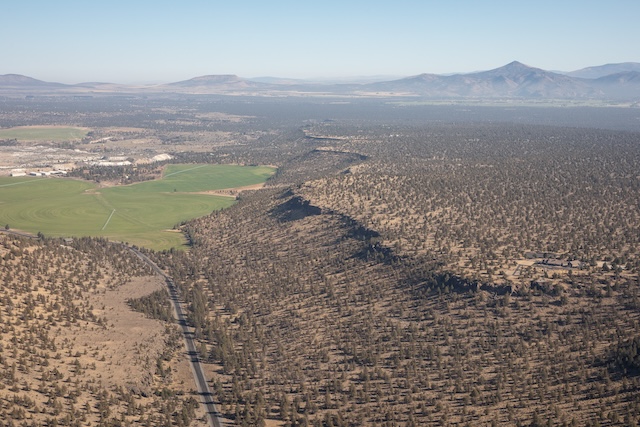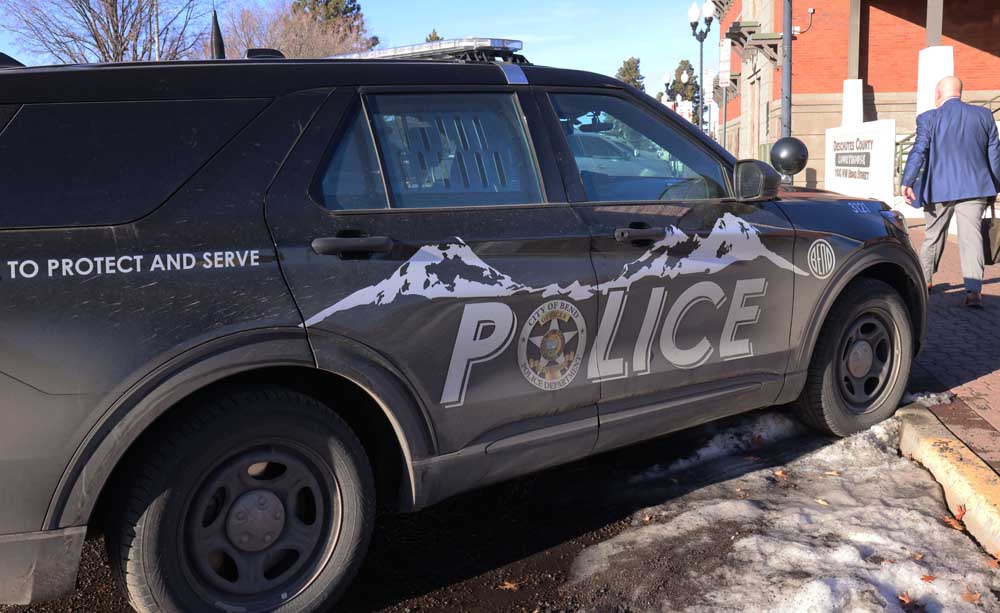Speedy sons often follow in fathers’ tire tracks
Published 12:00 am Monday, September 8, 2014
One of the strangest, saddest stories in auto racing involves the father and son Grand Prix racers Antonio and Alberto Ascari, who both won the Italian Grand Prix at Monza, where Formula One returns this weekend for its last race of the year in Europe.
The Italian father-and-son twosome shared the glory at what has come to be known as the Temple of Speed, the father winning at Monza in 1924, and the son in 1951 and 1952. Their destinies then crossed in another way, too: Antonio died at age 36 in an accident at the French Grand Prix at Montlhéry in 1925; Alberto died 30 years later, also at 36, while testing a sports car at Monza in 1955.
After his father’s death, Alberto grew up to be a champion, winning the Formula One drivers’ title in 1952 and 1953.
There have since been other father and son Grand Prix racers, though none have had the same misfortune.
This year, fathers and sons are again a talking point in the paddock. Nico Rosberg, the son of Keke Rosberg, the 1982 world champion, is leading the series by 29 points. He or his Mercedes teammate, Lewis Hamilton, is almost certain to win the driver’s title.
If Rosberg wins, he will become only the second son of a former champion to triumph. The other was Damon Hill, who won the title in 1996; his father, Graham, won in 1962 and 1968. The Hills are also the only other father and son winners of the Italian Grand Prix in the modern series, with Graham winning in 1962 and Damon in 1993 and 1994.
This season began with the arrival of another driver’s son, Kevin Magnussen, 21, at McLaren. He scored a podium finish in the season’s first race, the Australian Grand Prix in Melbourne, in March. Magnussen’s father, Jan, raced in Formula One in the 1990s, and, at 41, is still racing sports cars.
But when the news broke last month that Max Verstappen, 16, who still does not have a driver’s license, will race next year for the Toro Rosso team in Formula One after only one year of racing, many observers said the father-son connection had gone too far. Verstappen is the son of a former Formula One driver, Jos Verstappen. (His mother, Sophie Kumpen, was a top go-kart racer.)
A lifetime of education
So what makes the sons of drivers follow in their father’s tire tracks?
“It’s the education you have,” said the Canadian Jacques Villeneuve, who is the only other son of a driver to have won the world title, in 1997. His father, Gilles, never won it, though. He was killed in a racing accident when he was a favorite for the title in 1982.
“You grow up seeing things that you would not see if your father had been a doctor, for example,” Villeneuve said. “But with my father it was also his personality and attitude in life: how to take risks and how to respect this risk-taking.”
Of course, the way a father handles his son’s entry into the series can have an influence on his success or failure.
Rosberg’s father shows up at one or two races a year and keeps out of his son’s racing life, at least publicly. The son has rarely mentioned his father throughout his time in Formula One, which he joined in 2006.
On the rare occasions when he has spoken about his father, he has done so without emotion, with both praise and distance.
“He doesn’t really give advice,” Nico Rosberg said. “If he does, it’s not so easy to take the advice. In hindsight, I would always take it, but in the first moment it’s never so easy to just accept it. I’ll often try to argue the point. My dad is really wise and gives me advice in a lot of respects, more from the management side, from what he sees and all that. Sometimes he’ll make comments about what he thought about strategies and decisions like that.”
Both have won the Monaco Grand Prix, the first father and son to do so.
For both Hill and Villeneuve, the father had nothing directly to do with helping his son’s career, given that both had long been dead when the son began racing. Villeneuve said he was not sure he would have succeeded if his father had lived.
“If he had been there, I would have started younger, but I am sure that I would not have had the same career, I would not have had a good career,” Villeneuve said. “Because there is always the paternal oppression, there’s not the freedom. And the fact that he died gave me my freedom. It allowed me to become a man.”
Foot in the door
But Villeneuve, who was 11 when his father died, said that it had nonetheless been easier to break in and attract sponsorship early because of his name.
The disadvantage, he said, was having to perform well immediately because the spotlight was on him.
“You don’t have the time to learn,” he said. “You are immediately judged as if you are an experienced driver. A driver that starts — or a singer, whatever — they will be anonymous for two or three years. No one knows them. And then the moment they go fast, everyone says, ‘Oh, look at the new driver.’ No, they’ve been working on it for two or three years.”
Having started racing at the relatively late age of 17, Villeneuve won both the IndyCar series title and the Indianapolis 500 in 1995, when he was 24, before joining Formula One the next year.
Hill began racing cars long after his father’s death in a helicopter accident in 1975, when Damon was 15. He did not reach the Formula 3000 steppingstone series to Formula One until he was 29. He started in Formula One at age 32, first with the weak Brabham team, before joining Williams the next year, and then suddenly having to take over the job of No. 1 driver in the best car on the grid when his teammate Ayrton Senna died in 1994.
Magnussen and Verstappen began their racing careers early, in karting. Magnussen said his father had helped his career, but he also said that family can be a distraction around the track.
“It’s cool to have a dad who understands what you mean when you talk about oversteer or traction,” he said earlier this year. “But it’s not a help at the race.”
Jan Magnussen said he often avoided giving advice to his son, because it is often difficult to take advice from one’s father. He said he would give the advice to someone else, who would transfer it to Kevin.
Father-son-grandson?
Among the many other father-son drivers, some have not succeeded. The American Michael Andretti, son of the 1978 world champion, Mario Andretti, raced alongside Senna at the McLaren team for one season, in 1993. But he refused to live in Europe, commuting to the United States, and never had his heart in the series.
But there could be another chance: Marco Andretti, Michael’s son and Mario’s grandson, has long been talked about as a potential Formula One driver.
“There is nothing I would like to see better than that,” Mario Andretti said in 2012 before the inaugural U.S. Grand Prix in Austin, Texas.






